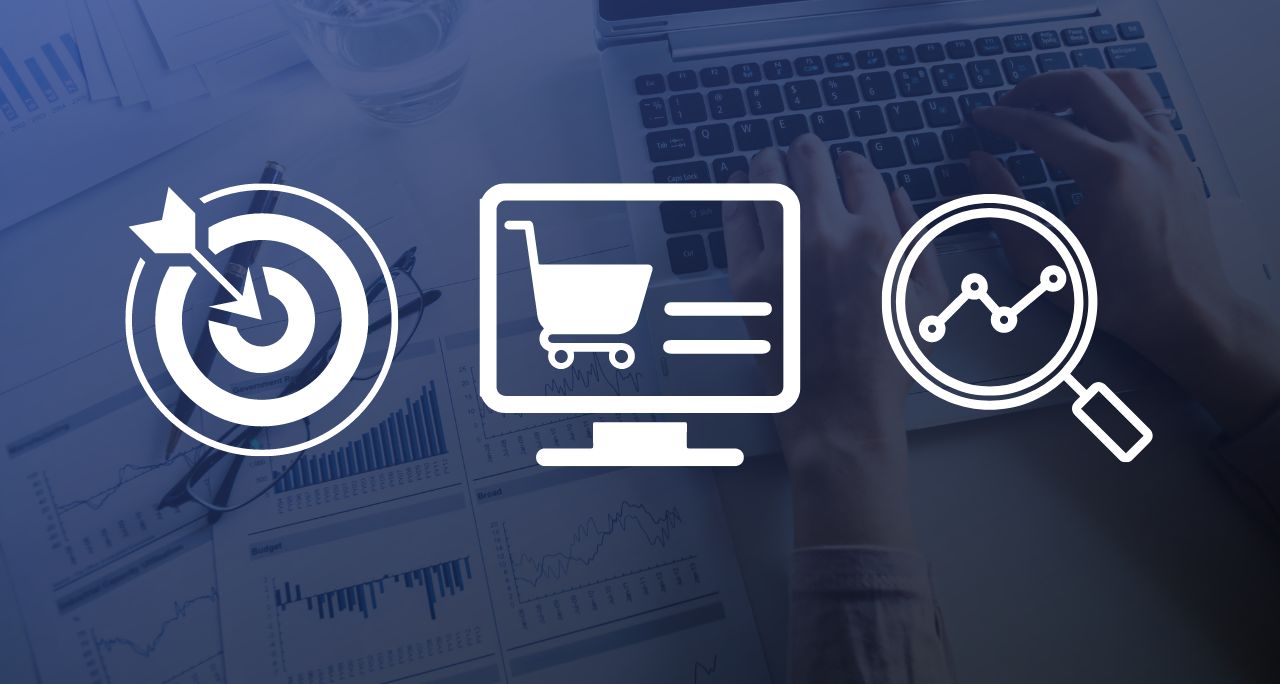Digital is a channel that can and should be tracked end to end. Meaning the data capture starts from an impression and goes all the way to the final sale. Granular tracking is the key as it helps improve ROI down to the lowest entity in your campaigns. In case of Paid search it is Keywords.
This article’s focus is to showcase the important of capturing paid search (PPC) keyword data through analytics. Google Analytics (GA) has been considered for this discussion. While you might have a different analytics tool we believe that the information here still applies to your PPC campaigns and you should try and get similar data from your current analytics system.
Importance of Keyword Data through GA
When it comes to PPC it is important to capture all the metrics accurately within the main user interface (Google Adwords) and the analytics system (GA). The metrics captured can be categorized as ‘front-end’ and ‘post-click’.
Front-end metrics cover data on keywords, ads and the landing or destination pages, and include clicks, Click Through Rates (CTR), Conversions/ Leads, sale value, Cost per Lead (CPL) etc. Post-click metrics include bounce rates, average time spent on site, % of new visitors and much more.
Adwords provides keyword information up to the point where the user clicks onto the website or the landing page. Post-click performance on GA shows user behavior on the destination page or the website. This information helps understand if users landing on the page stayed on it, if so for how long, how many pages did they visit etc.
Keyword level data can be obtained from GA in multiple ways. Keywords can be analyzed individually or at an aggregate level by defining segments. Data for one of Position2’s client in the B2B space is shown below as an example. An advance segment named ‘Brand’ keyword aggregates data for a pre-defined set of corporate and brand name keywords. Similarly, the ‘Non-brand’ keyword segment excludes traffic from these keywords.
Regardless of the business type (B2B, E-Commerce etc.) capturing keywords through analytics is crucial. Some of the key advantages of having keyword information through GA are provided below. The benefits should typically apply to any analytics platform you may be using.
- Keywords within GA help determine the performance at an aggregate level. In Table 1.0 aggregated performance of brand Keywords shows that they are producing 100% bounce rate and no conversions – an unusual occurrence for brand terms. This information indicates that the users landing on the destination page(s) are not finding what they are looking for. By extracting this data from our client’s GA account we identified that those conducting branded searches could be doing so to sign-in to their online accounts. If the campaign objective is lead generation or form fills the campaign may be better off without these specific terms.
- GA can be used to determine if non-performing keywords should be weeded out of the campaign or if new messaging should be tested. In Table 1.1 Keyword 5 and Keyword 6 are poor performers. These terms have 100% bounce rate despite driving new users and a reasonable time spent. For these keywords it would be important to evaluate the ad messaging and the landing page copy.
- Keyword data from paid search can be compared with numbers Organic traffic. For example if there is a drop in traffic and leads for a keyword in paid search, Organic traffic for the same keyword can be compared to check if it’s a seasonal trend.
- Destination URL performance can be evaluated down to a keyword level. This helps identify the best combination of Keyword-Destination Page, crucial information for campaign optimization.
- Performance for each keyword and post-click activity can be obtained in every match type (Exact, Broad and Phrase). Precise user queries that triggered the ads and their post-click performance can also be gathered. Again important data for campaign optimization.
- The best position for keywords can be determined. As seen below the position and post click performance for keywords can be captured. Crucial data to make decisions on keyword positions.
Passing the Keyword Data within GA
You can pass Paid search keyword data to GA by:
- Adding UTM parameters to destination URLs or
- Linking the GA and AdWords accounts and enabling Auto-tagging in Adwords
Let’s now examine how you can pass keyword data to other analytics platforms.
AdWords ValueTrack allows passing detailed data to any tracking system to optimize campaigns. By adding parameters to the destination URL, it is possible to pass information on keyword, ads etc
Here’s an example:
Destination URL tagged with parameters for keyword and match type:
http://www.example.com/?keyword={keyword}&matchtype={matchtype}
Actual URL post visitor click
http://www.example.com/?keyword=used%20cars&matchtype=p
Your tracking system will need to parse these parameters and allow for slicing and dicing of data based on these.
We recommend doing exhaustive testing to ensure all required information is captured accurately on your platform.
Conclusion
Keyword data helps optimize paid search campaigns down to the most granular level possible. This will in turn help generate efficient (low Cost per Lead) and quality leads. It will also provide multiple testing opportunities with messaging, positions and landing pages.
Not having keyword tracking within analytics will still allow for campaign management, but at an aggregate (ad group) level only. While not the optimal way to manage paid search campaigns this will still help in optimizing campaigns possibly to increase leads.





